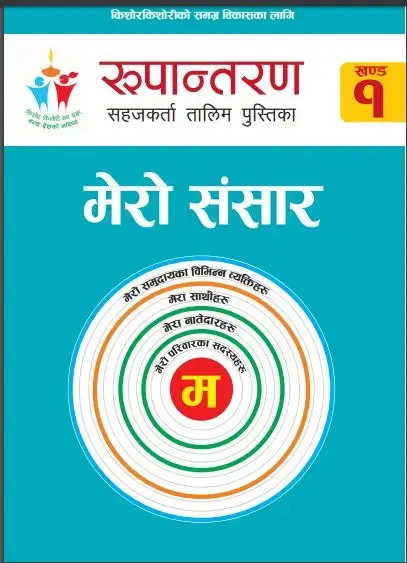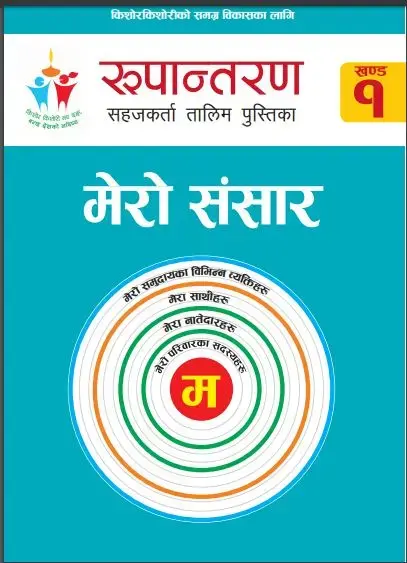KATHMANDU, 16 January 2017 – The official start of the Bachelor in Midwifery program in Nepal is an important milestone towards improving maternal and newborn health in the country, said the United Nations Population Fund (UNFPA).
The Government of Nepal launched the Bachelor in Midwifery program on January 5, honoring its long-term strategy of making midwifery an independent profession by producing professional midwives. “We commend the National Academy of Medical Science and Kathmandu University for starting the Bachelor in Midwifery courses,” said UNFPA Country Representative to Nepal Giulia Vallese.
“Midwives are key to reducing maternal mortality. Recognizing their importance in reducing maternal and neonatal mortality as well as morbidities contributes to making every pregnancy wanted and every birth safe,” said Vallese.
Well-trained midwives together with a recruitment, deployment and retention plan could help avert roughly two thirds of all maternal and newborn deaths. They could also deliver up to 87 percent of all essential sexual, reproductive, maternal and newborn health services. Midwives are one of the most cost-effective and culturally sensitive path to achieving universal health care, if practicing in an enabling environment and supported by regulations.
Nepal has made tremendous progress in reducing maternal mortality from 901 per 100,000 live births in 1990 to 258 in 2015, according to the Maternal Mortality Estimation Inter-Agency Group comprising WHO, UNICEF, UNFPA and the World Bank. This being said, many women continue to die in childbirth, either at home without access to skilled birth attendance or in health facilities providing sub-standard obstetric care. Furthermore, inequity in access and utilization of health care services has resulted in significant disparities in health conditions across different geographical areas, ethnic groups, educational and wealth status.
Therefore the quality of maternal newborn health services available at health institutions needs to continue to be strengthened. Such quality issues are further compounded by the lack of professional midwives as a separate cadre of health care professionals in accordance with global standards.
UNFPA has been working closely with the Ministry of Health and other partners in advancing midwifery education since 2009. We also welcome the active role the Nepal Nursing Council has played in mainstreaming midwifery agenda. “We hope that the government will soon prepare a recruitment, deployment, retention and career plan for the future midwives so that when they graduate they can quickly be deployed for service. UNFPA stands ready to support the government further in strengthening midwifery,” said Vallese.
For more information, please contact:
Santosh Chhetri, Advocacy and Communication Officer, UNFPA Nepal
Tel: +977 1 5523880/9801056028; schhetri@unfpa.org
---------------------------------------------------------------------------------------------------------------
प्रेस विज्ञप्ति
नेपालमा व्याचलर इन मिडवाइफ्री कार्यक्रमको थालनी कोसेढुंगा : यूएनएफपीए
काठमाडौं, ३ माघ २०७३ – नेपालमा औपचारिक रूपमा व्याचलर्स इन मिडवाइफ्री कार्यक्रम सुरू हुनु मुलुकको मातृ तथा नवजात शिशु स्वास्थ सुधारका लागि महत्वपूर्ण कोसेढुंगा भएको संयुक्त राष्ट्रसंघीय जनसंख्या कोष (यूएनएफपीए) ले जनाएको छ ।
नेपाल सरकारले व्यावसायिक मिडवाइफको उत्पादनबाट यसलाई एउटा स्वतन्त्र पेशाका रूपमा स्थापित गर्ने आफ्नो दीर्घकालीन रणनीतिलाई मान्यता दिंदै पौष २१ देखि व्याचलर्स इन मिडवाइफ्री कार्यक्रम सुरु गरेको हो । ‘हामी राष्ट्रिय स्वास्थ्य विज्ञान प्रतिष्ठान र काठमाडौं विश्वविद्यालयलाई व्याचलर्स इन मिडवाइफ्री कोर्स सुरु गरेकोमा कदर गर्न चाहन्छौं’ नेपालका लागि यूएनएफपीएकी प्रतिनिधि जुलिया भलिसीले भन्नुभयो ।
‘मातृ मृत्युदर घटाउन मिडवाइफहरूको मुख्य भूमिका छ । मातृ तथा नवजात शिशु मृत्युका साथै रोगको न्यूनिकरणमा उनीहरूको महत्वलाई यसरी मान्यता दिनुले प्रत्येक गर्भधारलाई इच्छाएको र प्रत्येक जन्मलाई सुरक्षित बनाउन योगदान दिन्छ’ उहाँले भन्नुभयो ।
राम्ररी तालिमप्राप्त मिडवाइफहरूका साथै उनीहरूलाई रोजगारीमा भर्ना लिने, काममा खटाउने र काममा लगाइराख्ने योजनाले कूल मातृ तथा नवजात शिशु मृत्युको झण्डै दुई तिहाई घटाउनका निम्ति मद्दत पु¥याउन सक्छ । साथै, उनीहरूले ८७ प्रतिशतसम्म अत्यावश्यक यौन, प्रजनन्, मातृ तथा शिशु स्वास्थ्य सेवाहरू उपलब्ध गराउन सक्छन् । अनुकूल परिस्थितिको निर्माण र आवश्यक नीति–नियमहरूबाट साथ दिने हो भने मिडवाइफहरू स्वास्थ्य सेवामा सबैको पहुँच सुनिश्चित गर्न एउटा सबैभन्दा मितव्ययी र सांस्कृतिक रूपमा सम्वेदनशील उपाय हो ।
विश्व स्वास्थ्य संगठन, युनिसेफ, यूएनएफपीए र विश्व वैक सहितको अन्तर एजेन्सी समूहको मातृ मृत्युसम्बन्धी एक अनुमानअनुसार सन् १९९० मा प्रति एक लाख जीवित जन्ममा ९ सय १ मातृ मृत्युदर रहेकामा सन् २०१५ मा यो २ सय ५८ मा झारेर नेपालले अत्यन्तै ठूलो प्रगति गरेको छ । सुत्केरी गराउने दक्ष सहयोगीको अभावमा घरमै सुत्केरी हुँदा वा स्वास्थ्य निकायहरूमा पूर्ण रूपमा स्तरीय प्रसूति सेवा÷रेखदेखको उपलबब्धता नहुनाले धेरै महिला सुत्केरी हुने क्रममा मृत्यु हुने क्रम अझै जारी छ । त्योभन्दा पनि ज्यादा, स्वास्थ सेवाहरूको उपयोग र पहुँचमा असमानताले विभिन्न भौगोलिक क्षेत्र, जातीय समूह तथा शैक्षिक र आर्थिक अवस्था भएकाहरूबीचको स्वाथ्य स्थितिमा गम्भीर विभेदहरू पैदा गरेको छ ।
त्यसैले स्वास्थ्य संस्थाहरूमा उपलब्ध मातृ तथा नवजात शिशुसम्बन्धी स्वास्थ सेवाहरूको गुणस्तर निरन्तर सुदृढ गराइनु आवश्यक छ । यस्ता गुणस्तरीयताका सवालहरू विश्वव्यापी मान्यता अनुरूपको छुट्टै स्वास्थ्य रेखदेख गर्ने व्यावसायिक मिडवाइफहरूको अभावमा थप जटिल हुन गएका छन् ।
यूएनएफपीएले सन् २००९ देखि नै नेपालमा मिडवाइफ्री शिक्षाको विशिष्टिकरणका लागि स्वास्थ्य मन्त्रालय र अन्य साझेदारहरूसँग काम गर्दै आइरहेको छ । मिडवाइफहरूका एजेन्डालाई मूलधारमा ल्याउन नेपाल नर्सिङ काउन्सिलले खेलेको सक्रिय भूमिकाको पनि हामी स्वागत गर्न चाहन्छौं । ‘हामी आशा गर्छौं कि, सरकारले छिट्टै भविश्यका मिडवाइफहरूलाई रोजगारीमा भर्ना लिने, काममा खटाउने, काममा लगाइरहने र उनीहरूको करियरको योजना बनाउने छ, जसले गर्दा उनीहरूले आफू स्नातक हुने वित्तिकै सेवा दिने अवसर पाउने छन्’ भलिसीले भन्नुभयो, ‘मिडवाइफहरूलाई अझ सवल बनाउनमा सरकारलाई सघाउन यूएनएफपीए तत्पर छ ।’





